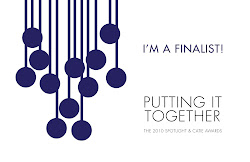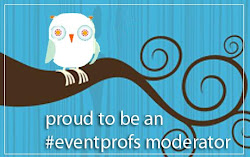Event ROI is fictitious.
Whoa! Back up. Before anyone shouts back, let me explain. My theory is based on the following premises I have observed:
1. Special Events are essentially facilitated human interaction.
2. The problem with people is that you cannot control all the variables.
3. (Excluding sales-based projects and annual meetings), many events are one-offs. With no prior baseline to measure against, how do you concretely document the return.
4. Great Events prove that often 2+2=5 (that is the result of all the pieces (value of the experience) is greater than the individual pieces (price) themselves).
5. Events are ultimately chasing an intangible: memory retention of the experience.
Now some readers of this will want to argue that every meeting and event is sales driving for any organization and we can argue that. Others will articulate that every good event is rooted in brand strategy, business objectives and/or messaging which I agree with, but we are not talking about a Return on Objective, we are discussing Return on Investment. And its NOT just semantics. If you hit the APEX dictionary, the definition for Event ROI is a tradeshow one: Value (most likely financial) returned for an investment made. Events for the most part, represent costs not returns to organizations.
So can we give up the ROI debate? Absolutely not. The question it seems comes down to how we define that word 'value'. As event professionals, it is critical that we create strategies which design meetings & events for a return; and those energies should be split between creating value for the company and for all event attendees. We must frame up the experience at the event to facilitate the conversations we want to happen and allow room for attendees to create their own dialogues. Before we try to measure our events, we need to define what return we are trying to provide and then create both our strategies and measurements tools to document the value we just defined. Which means that there is no one equation for measuring the ROI of an event, but a multitude of possibilities.
And finally we have to be OK with what we hear back through our measurement models. As much as events are facilitated human interactions, they evolve as the audience becomes more refined and the product experience more defined. We must accept criticism which states that we missed the mark, and address it the same way we accept the positive feedback. As a good friend and colleague, Cheryl Kranz of CEK Events, recently shared with me, our focus should not be on moving the "good" evaluation folks up to "great" but creating value opportunities so all respondents respond to a great experience - even if that experience is wholly unique to every individual attendee. And that event will have a perfect ROI.
Thursday, January 15, 2009
Event ROI -> Whats the Return?
Labels:
BeTheory,
Event Business,
Event Strategy,
Measurement,
ROI
Subscribe to:
Post Comments (Atom)






This is a fantastic rational assessment of event value. I like that it is both progressive and realistic.
ReplyDeleteI was thinking recently about how we could build from @SamuelJSmith 's post about 20 reasons people attend conferences. What if we could assess the different goals for each conf and architect accordingly? We might find that we get higher ROI that way.
Swan